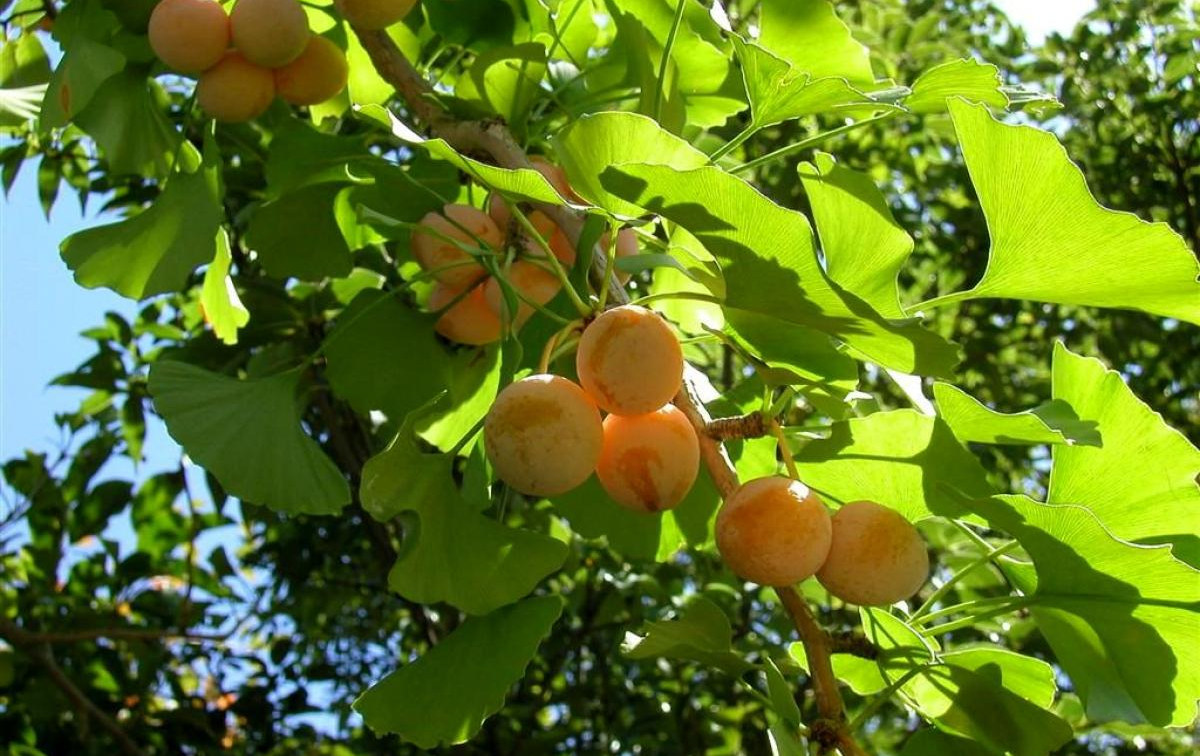Τζίνγκο μπιλόμπα: Το έξυπνο βότανο
Το Τζίνγκο Μπιλόμπα θεωρείται το «έξυπνο βότανο», δεδομένου ότι μεταδίδει ένα αίσθημα ευεξίας και πνευματική εγρήγορση και φημίζεται για την βελτίωση της μνήμης. Το πλήθος ισχυρών αντιοξειδωτικών μπορεί να επιβραδύνει και να περιορίσει τις ελεύθερες ρίζες οι οποίες είναι υπεύθυνες για την πρόωρη γήρανση και την άνοια.

Λίγη ιστορία…
Το δέντρο του είναι μοναδικό από πολλές απόψεις. Επίσης γνωστό ως «πολύτριχο δέντρο», ανθίζει μόνο τη νύχτα και ρίχνει τα άνθη του.Πρόκειται για ένα δέντρο που καταφέρνει να επιβιώνει. Το τζίνγκο μπιλόμπα αναφέρεται συχνά ως «ζωντανό απολίθωμα» αφού χρονολογείται πάνω από 270 εκατομμύρια χρόνια, από την εποχή των δεινοσαύρων.
Η ιστορία του δέντρου ως φάρμακο είναι επίσης μακρά. Σε κινεζικές γραπτές μαρτυρίες αναφέρεται η χρήση των φύλλων του ήδη από το 2.800 π.Χ., διότι βελτίωναν την κυκλοφορία του αίματος και τη λειτουργία των πνευμόνων. Γραπτά από τον 15ο αιώνα αναφέρουν τη χρήση των φύλλων για τη θεραπεία των πληγών του δέρματος και τη διάρροια.
Οφέλιμες ουσίες
Οι επιστήμονες έχουν εντοπίσει πάνω από 40 ουσίες στο δέντρο αυτό. Μέχρι στιγμής μόνο 2 – τα φλαβονοειδή και τα τερπενοειδή – φαίνεται ότι διαθέτουν φαρμακευτικές ιδιότητες. Τα φλαβονοειδή είναι φυτικά αντιοξειδωτικά που έχει αποδειχτεί ότι προστατεύουν τα νεύρα, τον καρδιακό μυ, τα αιμοφόρα αγγεία και τον αμφιβληστροειδή από βλάβες. Τα τερπενοειδή (όπως οι τζινγκολίδες) είναι γνωστό ότι βελτιώνουν τη ροή του αίματος.
Χρήσιμο για τη μνήμη
Γνωρίζουμε από περισσότερες από 50 μελέτες έρευνας ότι τα ενεργά συστατικά του τζίνγκο μπιλόμπα είναι πολύ αποτελεσματικά για την αύξηση της ροής του αίματος στον εγκέφαλο. Καλύτερη ροή αίματος σημαίνει καλύτερη μνήμη και μεγαλύτερη γενική εγρήγορση. Πολυάριθμες μελέτες έχουν δείξει ότι, σε περιπτώσεις εγκεφαλικής ανεπάρκειας (ανεπαρκούς ροής αίματος στον εγκέφαλο), το ginkgo biloba αποτελεί μια πολύτιμη και εξαιρετικά ασφαλή θεραπεία. Αποκαθιστώντας μια ομαλότερη ροή αίματος προς τον εγκέφαλο, το τζίνγκο μπιλόμπα μειώνει την απώλεια μνήμης, τη σύγχυση, τον αποπροσανατολισμό και την ψυχοκινητική διέγερση. Φυσικά, καλύτερη ροή αίματος σημαίνει επίσης μικρότερη πιθανότητα για ισχαιμικό εγκεφαλικό. To ginkgo biloba μειώνει τις πιθανότητες εγκεφαλικού και με άλλον ένα τρόπο, κάνοντας τα αιμοπετάλια λιγότερο κολλώδη, και συνεπώς μειώνοντας τις πιθανότητες να σχηματίσουν θρόμβο και να αποκλείσουν τη ροή αίματος προς τον εγκέφαλο.




















